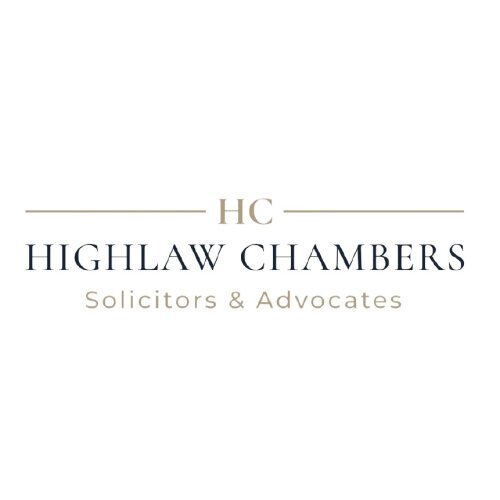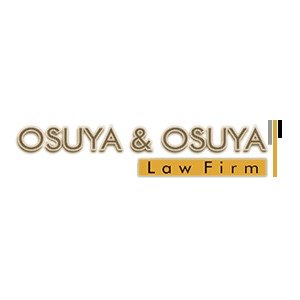Best Consumer Protection Lawyers in Abuja
Share your needs with us, get contacted by law firms.
Free. Takes 2 min.
List of the best lawyers in Abuja, Nigeria
Nigeria Consumer Protection Legal Questions answered by Lawyers
Browse our 1 legal question about Consumer Protection in Nigeria and read the lawyer answers, or ask your own questions for free.
- My landlady brought 7 days quit notice when I still have 9 months remaining in my rent.
- My landlady give me 7days quit notice just 3 months after renewing my annual rent. She brought the quit notice because informed her of some serious cracks in the house that required repairs. I still have 9 months remaining in my rent.
-
Nigeria Consumer Protection Legal Articles
Browse our 1 legal article about Consumer Protection in Nigeria written by expert lawyers.
- Defective Products, Goods and Services: Available Remedies to Consumers Against Manufacturers in Nigeria
- The importance of consumer protection has grown in recent years. Industrialization has led to the creation and distribution of advanced items worldwide. Consumer protection legislation must be broad and dynamic to protect against potential risks. Consumers are exposed to greater hazards. Consumer dissatisfaction is common when sellers refuse to address... Read more →
About Consumer Protection Law in Abuja, Nigeria
Consumer protection in Abuja, Nigeria, is designed to ensure the rights of consumers are upheld, guaranteeing that they receive products and services that are safe, fairly priced, and as described. The governing body responsible for consumer rights in Nigeria is the Federal Competition and Consumer Protection Commission (FCCPC). The FCCPC works to ensure businesses comply with consumer protection laws, address grievances, and enforce standards. These regulations empower consumers, giving them a platform to voice complaints and seek redressal from unfair trade practices, defective products, or services.
Why You May Need a Lawyer
There are several scenarios where seeking legal assistance with consumer protection issues may be beneficial:
- Fraudulent Schemes: Falling victim to scams or fraudulent business practices.
- Product Liability: Dealing with defective products that cause harm.
- Unfair Business Practices: Encountering misleading advertisements or false claims.
- Consumer Rights Violations: Having disputes with sellers or service providers regarding terms and conditions.
- Compensation Claims: Seeking compensation for losses or damages.
In these situations, a lawyer can offer guidance, negotiate settlements, or represent you in court if necessary.
Local Laws Overview
In Abuja, as in other parts of Nigeria, the principal law guiding consumer protection is the Federal Competition and Consumer Protection Act (FCCPA), 2018. Key aspects include:
- Rights to Safety: Consumers are entitled to receive safe products and services, which should not pose health hazards.
- Right to Information: Consumers must be adequately informed about the quality, quantity, potency, and price of goods and services to protect them from unfair trade practices.
- Right to Choose: Consumers should have access to a variety of products and services at competitive prices.
- Right to Redress: Availability of various redressal mechanisms to address consumer grievances, such as refunds, replacements, or compensation.
Frequently Asked Questions
What is consumer protection?
Consumer protection refers to the laws and regulations designed to protect buyers from unfair, deceptive, or harmful business practices.
Who oversees consumer protection in Nigeria?
The Federal Competition and Consumer Protection Commission (FCCPC) is the key regulatory body for consumer protection in Nigeria.
Are businesses in Abuja required to adhere to consumer protection laws?
Yes, all businesses in Abuja must comply with national consumer protection laws to ensure fair practices and product safety.
How can I file a complaint against a business in Abuja?
You can file a complaint with the FCCPC, providing details about the product or service, proof of purchase, and any correspondences with the company.
What should I do if I receive a defective product?
Contact the vendor for a resolution; if unsatisfactory, file a complaint with the FCCPC for remedy.
Can a lawyer help with consumer protection issues?
Yes, a lawyer experienced in consumer protection can advise on your rights, help file complaints, and represent you in legal proceedings.
What steps should I take if I have been scammed?
Report the scam to the FCCPC and potentially seek legal advice to explore options for redressal.
Is there a time limit to file a consumer complaint?
Generally, it's best to file a complaint as soon as possible. Specific timeframes can vary depending on the nature of the issue.
Do consumer protection laws cover online purchases?
Yes, online transactions are governed by the same consumer protection laws as physical purchases.
What legal actions can be taken for consumer rights violations?
Legal actions may include filing complaints, seeking mediation or arbitration, or pursuing litigation for serious violations.
Additional Resources
Consider reaching out to the following resources for further assistance with consumer protection:
- The Federal Competition and Consumer Protection Commission (FCCPC)
- Consumer Awareness Organizations
- Legal aid providers specializing in consumer rights
- Professional associations for legal practitioners
Next Steps
If you need legal assistance in consumer protection:
- Gather all relevant documents and evidence of your case.
- Contact the FCCPC to file an official complaint and receive guidance on the issue.
- Consider consulting with a lawyer specializing in consumer protection to assess legal options and representation.
- Review feedback and ratings for potential law firms or lawyers before engaging services.
By taking these steps, you can better protect your rights and seek appropriate solutions for consumer-related disputes.
Lawzana helps you find the best lawyers and law firms in Abuja through a curated and pre-screened list of qualified legal professionals. Our platform offers rankings and detailed profiles of attorneys and law firms, allowing you to compare based on practice areas, including Consumer Protection, experience, and client feedback.
Each profile includes a description of the firm's areas of practice, client reviews, team members and partners, year of establishment, spoken languages, office locations, contact information, social media presence, and any published articles or resources. Most firms on our platform speak English and are experienced in both local and international legal matters.
Get a quote from top-rated law firms in Abuja, Nigeria — quickly, securely, and without unnecessary hassle.
Disclaimer:
The information provided on this page is for general informational purposes only and does not constitute legal advice. While we strive to ensure the accuracy and relevance of the content, legal information may change over time, and interpretations of the law can vary. You should always consult with a qualified legal professional for advice specific to your situation.
We disclaim all liability for actions taken or not taken based on the content of this page. If you believe any information is incorrect or outdated, please contact us, and we will review and update it where appropriate.













